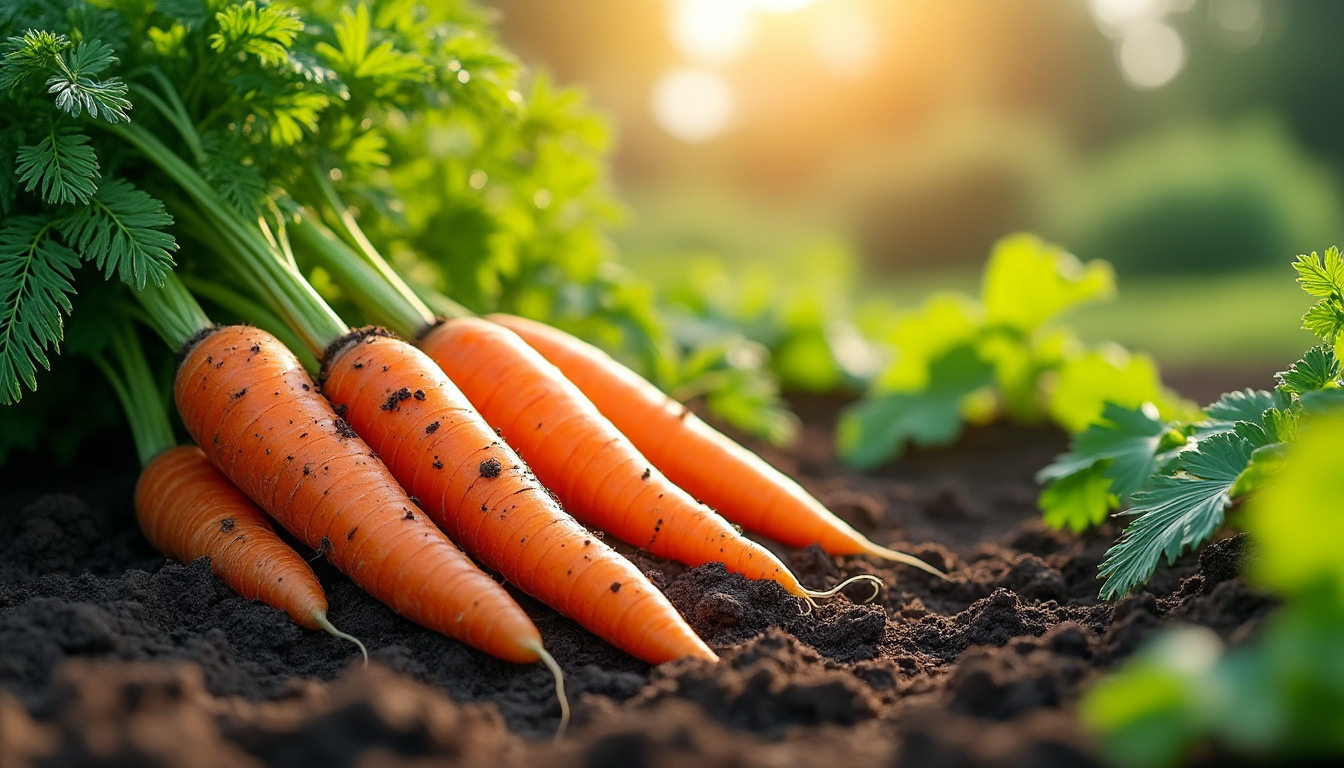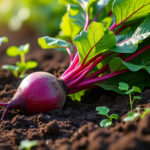Harvesting carrots at the right time is essential for maximizing their flavor, texture, and overall nutritional value. This guide outlines the key indicators to look for, optimal timelines, and the crucial practices for successful carrot harvesting.
Visual Signs of Readiness for Harvesting Carrots
Observing visual cues is vital in determining when carrots have reached their peak. Here are important indicators to consider:
- 🌱 Size of the Carrot Tops: Look for tops that are approximately 6-8 inches tall; this often signals maturity.
- 🔍 Carrot Shoulders: Mature carrots typically showcase visible shoulders, about 1/2 to 1 inch in diameter.
- 🌿 Color: The carrot tops should be vibrant and dark green; lighter greens indicate immaturity.
Timelines for Harvesting
The time it takes for carrots to mature varies depending on their variety and growing conditions. To help determine the best harvest time:
| Variety | Days to Maturity | Optimal Size for Harvest |
|---|---|---|
| Criolla | 70-80 days | 3/4 inch diameter |
| Imperator | 65-75 days | 1 inch diameter |
| Chantenay | 70-80 days | 1/2 inch diameter |
To determine when to harvest, keep track of the planting date and compare it to the expected days to maturity.
Identifying Carrots That Are Not Ready for Harvest
It is equally important to recognize when carrots are not ready for harvesting:
- 🚫 Small Shoulders: Shoulders less than 1/2 inch in diameter indicate that the carrot needs more time.
- 🪴 Thin Roots: Pulling up underdeveloped roots signifies that the carrots are still growing.
Can You Wait Too Long to Harvest Carrots?
Yes, waiting too long can drastically affect the carrots’ quality:
- ❌ Woodiness: Overripe carrots can develop a woody texture and lose their sweetness.
- 💧 Splitting: Carrots exposed to varying moisture levels may split or crack as they mature.
- 🌼 Flowering: If flowering occurs, the root becomes inedible as the plant focuses on seed production.
Best Practices for Harvesting Carrots
Effective harvesting methods ensure the integrity and freshness of carrots:
- 🔄 Check Regularly: Start inspecting around a week before expected maturity by gently brushing soil off to gauge size.
- ⚒️ Use a Garden Fork: Loosen the soil around the carrots to prevent damage during extraction.
- 📦 Harvest in Batches: For larger patches, stagger your harvest to maintain freshness over time.
the best time to prune viburnum for healthy growth
Post-Harvest Care and Storage of Carrots
Proper post-harvest care is crucial to extend the freshness of carrots:
- 💧 Cleaning: Wash carrots thoroughly in cool water to remove dirt before storing.
- 🧼 Drying: Gently dry carrots to prevent spoilage caused by excess moisture.
- 🥕 Storage: Store in a perforated bag in the refrigerator for optimal freshness.
FAQs About Harvesting Carrots
- When are carrots ready to harvest? Carrots are typically ready 60-80 days post-planting, visible by size and color.
- How do I know if my carrots are overripe? Check for a woody texture and bitter flavor; size growth may also indicate overripeness.
- Can I harvest baby carrots? Yes! Baby carrots can be harvested earlier, around 30 days after planting.
Understanding the optimal time to harvest carrots ensures the enjoyment of Carrot Bliss in every crunchy bite. By following these best practices, gardeners can enjoy the Harvest Fresh bounty from their gardens for weeks to come.
For more tips on maximizing flavor and enjoyment from your garden, explore additional resources on harvesting carrots and enhancing your Flavorful Fields experience.








